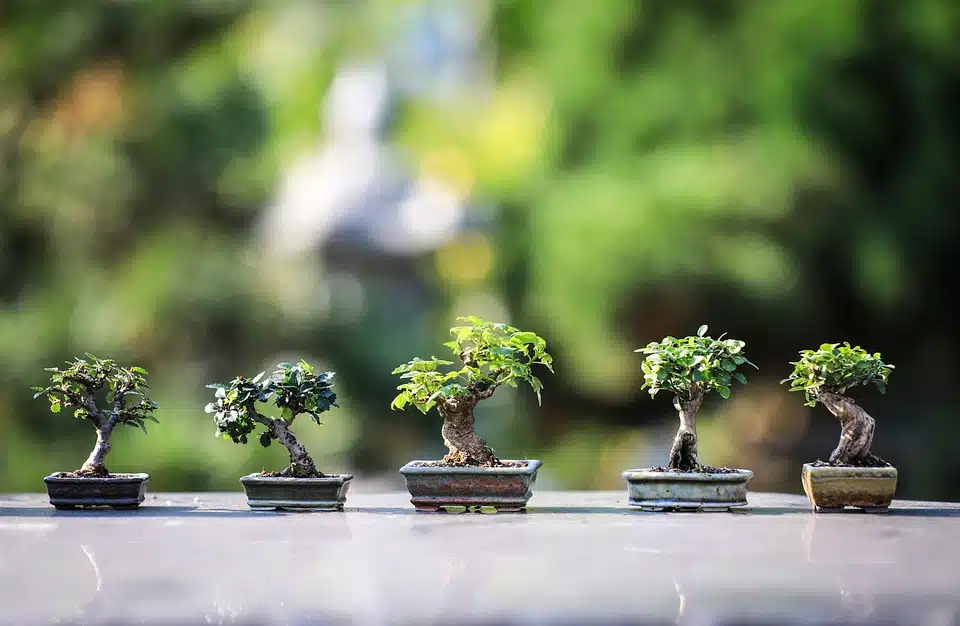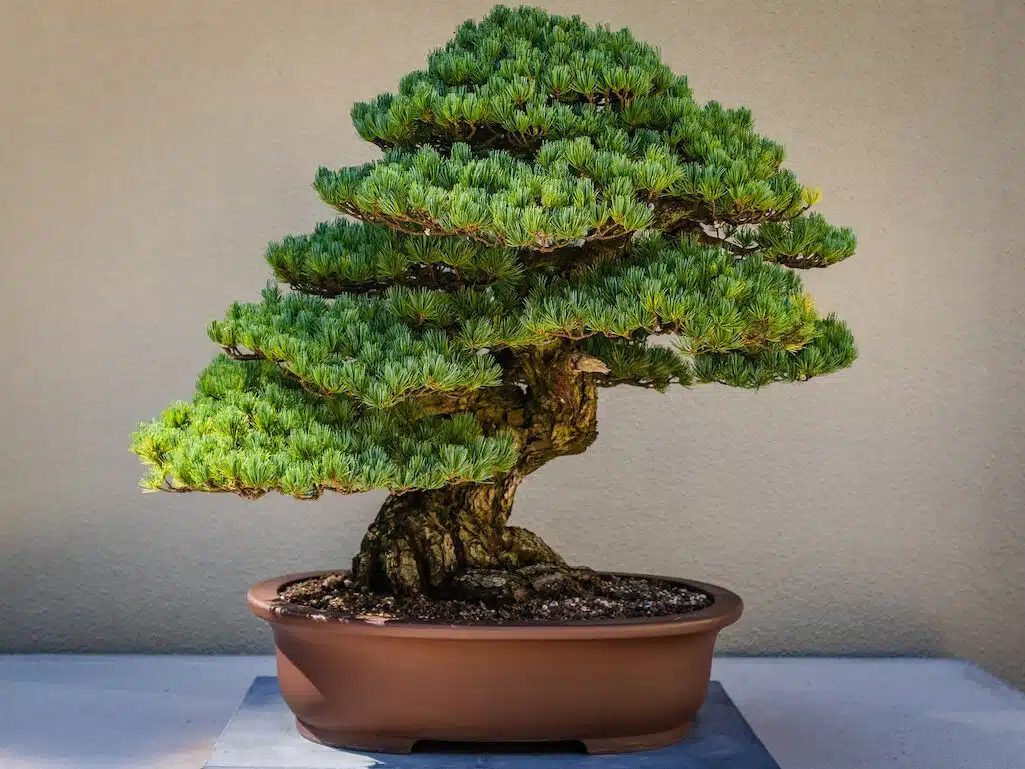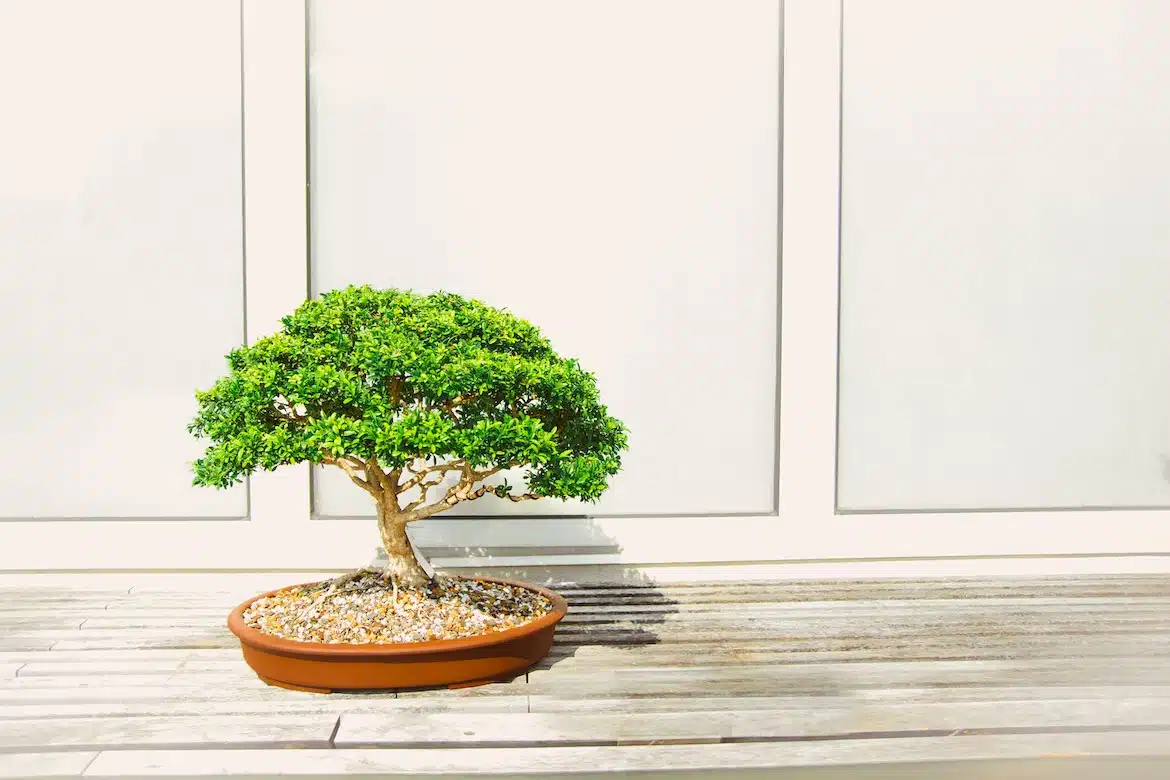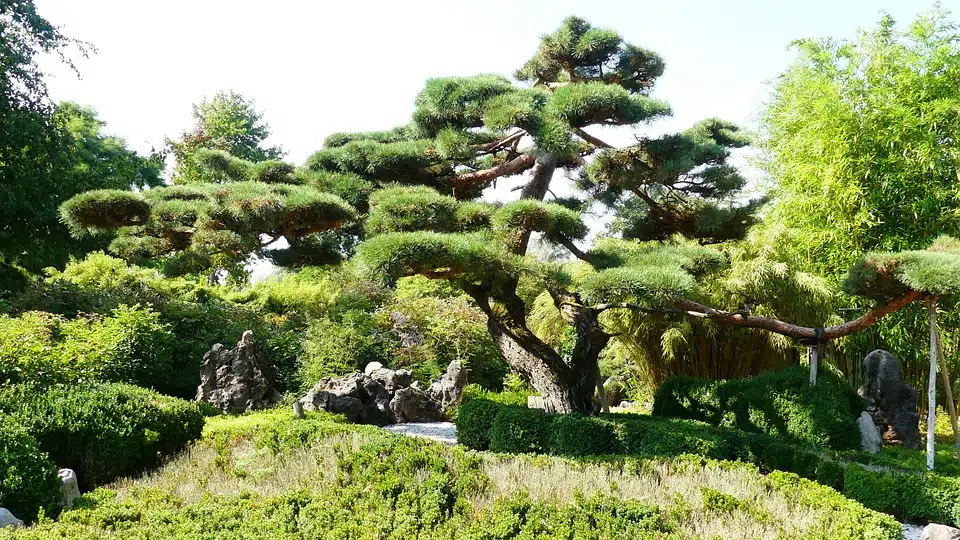Do you want to know: How Long do Bonsai Trees Live?
Bonsai trees are small, miniature versions of trees that are grown and trained to be ornamental plants. They are often associated with Japanese culture, where the art of bonsai has been practiced for centuries. One of the most common questions asked about bonsai trees is how long they live.
Some facts about Bonsai Trees

Bonsai trees can be beautiful and fascinating plants, and there are many interesting facts about them.
One of the most fascinating facts about bonsai trees is that they are not a specific species of tree, but rather any tree that has been trained and shaped to grow in a small, compact form. This means that almost any species of tree, from pine trees to oak trees to flowering trees, can be grown as a bonsai.
Another interesting fact about bonsai trees is that they are not genetically dwarfed or altered in any way. However, with the right care and attention, a bonsai tree can live for many years. Even if it is grown indoors. For longevity, it is important to give it the right care and environment. This means that a bonsai tree is not a miniature version of a full-sized tree. It is rather a full-sized tree that has been trained to grow in a small form.

Bonsai trees can be grown both indoors and outdoors. They can be trained to grow in a variety of shapes and styles. Some of the most popular styles of bonsai include the formal upright style, the informal upright style, the cascade style and the semi-cascade style. Each style has its own unique characteristics and can be used to create beautiful and artistic compositions.
How Long do Bonsai Trees Live

The lifespan of a bonsai tree depends on several factors. These includes the species of tree, the care it receives and the environment it is grown in. Some species of trees, such as junipers, are naturally long-lived and can live for hundreds of years with proper care. Other species, such as maples and elms, have shorter lifespans and may only live for a few decades.
To keep a bonsai tree healthy and alive for as long as possible, it is important to provide it with the right care and environment. This includes watering the tree regularly, providing it with sufficient sunlight and nutrients. Furthermore, it is important to prune and shape it as needed to maintain its miniature size. Bonsai trees grown indoors may have a shorter lifespan than those grown outdoors. This is because they are more susceptible to pests and diseases and do not get as much sunlight and fresh air.
Overall, the lifespan of a bonsai tree can vary greatly. With the right care, however, it is possible for a bonsai tree to live for many years and give pleasure for generations.
How much is a 400 year old bonsai tree worth?
It is difficult to determine the exact value of a 400-year-old bonsai tree. The value of bonsai trees can vary greatly depending on several factors, including the species of tree, the quality of the bonsai and the reputation of the grower. In general, however, very old and well-maintained bonsai trees can be worth thousands of dollars. Some of the most valuable bonsai trees have been sold at auction for hundreds of thousands of dollars.
The value of a 400 year old bonsai tree would probably be quite high. It would probably be considered a valuable and rare specimen. If you are interested in the value of a particular bonsai tree, it is best to consult a bonsai expert or appraiser for an accurate valuation.
How long do bonsai trees live indoors?

The lifespan of a bonsai tree grown indoors can vary depending on several factors, including the type of tree, the care it receives and the environment in which it is grown. Some species, such as junipers, are naturally long-lived and can live for hundreds of years with the right care. Other species, such as maples and elms, have a shorter lifespan and may only live for a few decades.
In general, bonsai trees grown indoors have a shorter lifespan than those grown outdoors. This is because they are more susceptible to pests and diseases. They also do not get as much sunlight and fresh air. However, with the right care and attention, a bonsai tree can live for many years, even if it is grown indoors. In order for your bonsai tree to live as long as possible, it’s important to give it the right care and environment. It is important to provide regular watering, sufficient sunlight and nutrients, as well as proper pruning and shaping.
Is a bonsai tree hard to keep alive?

Bonsai trees are not necessarily more difficult to keep alive than other types of plants. But they do require regular care and attention in order to thrive. Bonsai trees are grown in small pots and are trained to grow in a miniature form, and this can make it more challenging to provide them with the right care and environment.
To keep a bonsai tree alive, it is important to give it the right care and attention. This includes watering the tree regularly and providing it with sufficient sunlight and nutrients. It should also be pruned and shaped as necessary to maintain its miniature size. Bonsai trees also require regular repotting and root pruning to ensure that their roots have enough room to grow and to prevent the tree from becoming pot-bound.
Overall, keeping a bonsai tree alive requires regular care and attention, but it is not necessarily more difficult than caring for other plants. With the right care and environment, it is possible for a bonsai tree to thrive and live for many years.
How much does a 50 year old bonsai tree cost?
The cost of a 50-year-old bonsai tree can vary greatly depending on several factors. These include the type of tree, the quality of the bonsai and the reputation of the grower. In general, however, very old and well-maintained bonsai trees can be worth thousands of dollars.
Some of the most valuable bonsai trees have been sold at auction for hundreds of thousands of dollars. The cost of a 50 year old bonsai tree would probably be quite high. It would probably be considered a valuable and rare specimen. If you are interested in purchasing a 50 year old bonsai tree, it is best to consult a bonsai expert or a reputable bonsai dealer for pricing information.
Why are bonsai trees so rare?
Bonsai trees are not necessarily rare in the sense that they are hard to find. This is because bonsai trees are often sold in nurseries, garden centres and online. However, bonsai trees that are very old and well cared for can be rare and valuable. They are considered works of art and can be worth thousands of dollars.
The reason why very old and well-maintained bonsai trees are considered rare and valuable is that they are the result of many years of skilled training and care. Bonsai trees are not genetically reduced in size or altered in any way. They are not naturally small. Instead, bonsai trees are trained and shaped through careful pruning and wiring. This allows the grower to control the shape and size of the tree. This process takes many years and requires a great deal of skill and experience.
Therefore, very old and well cared for bonsai trees are considered rare and valuable as they are the result of years of care and training.
Summary – How Long do Bonsai Trees Live
In conclusion, bonsai trees are fascinating and beautiful plants that can be enjoyed by people of all ages. They are not a specific species of tree, but rather any tree that has been trained and shaped to grow in a small form. With proper care and attention, bonsai trees can live for many years and can be a source of beauty and enjoyment for generations.
That was our article about How Long do Bonsai Trees Live – If you want to read more about nature, have a look at our Cockroach articles!
- A Milestone in North Korea Tourism: Russian Tourists Arrive - January 14, 2024
- Rediscovering China’s Skies: China International Flights Recovery - January 7, 2024
- Exploring the Philippines: A Record-Breaking Tourism in 2023 - January 7, 2024

